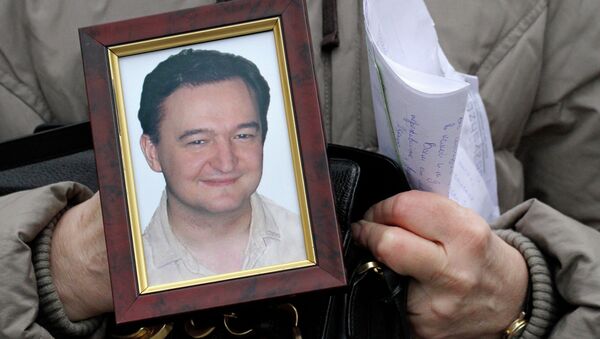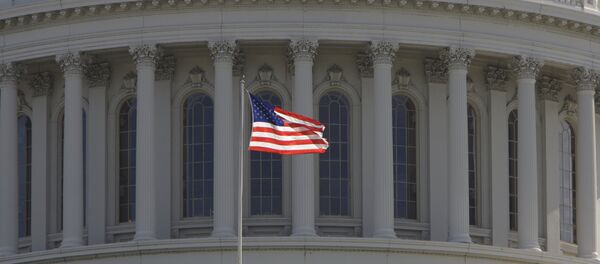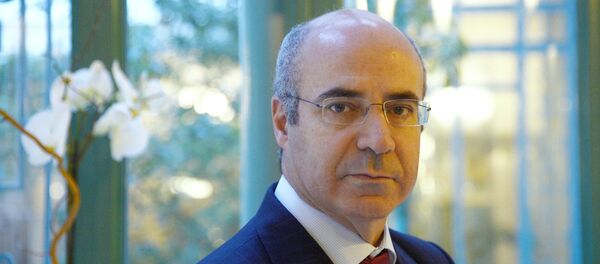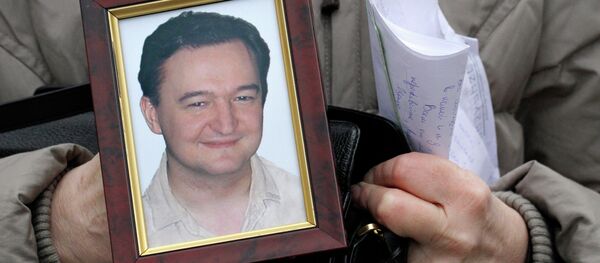Sergey Magnitsky has become an icon of a "corrupt" Russian government that brutally crushes anyone attempting to tackle corruption. According to the Western narrative, Sergey Magnitsky was tortured and beaten to death in prison by Russian authorities. This claim is based on a single source, William Felix Browder, the Chief Executive Officer and co-founder of the investment fund Hermitage Capital Management, whom Magnitsky was working for.
The US government has used Browder's story to impose sanctions on a number of Russian officials as part of the Magnitsky Act, passed by the US Congress and President Obama in 2012.
Andrei Nekrasov, a screenwriter and filmmaker whose filmography dates back to 1987 is recognized as a fierce critic of Vladimir Putin.
His latest documentary began as an exploration of the "conspiracy" surrounding Magnitsky's death. But as he interviewed Browder and did his own research, he discovered that Browder's version is riddled with a very large number of inconsistencies.
"Pretty much everything about the Magnitsky case, except for the fact that he worked for Browder and that he died in prison, is invented," Nekrasov tells Radio Sputnik's Loud & Clear.
The filmmaker points out a number of other irregularities. For one, Magnitsky was never a lawyer, but rather a "brilliant" accountant and auditor. Additionally, he wasn't hired by Browder to investigate tax fraud allegations that Browder's Hermitage Capital Management had been accused of. In reality, Magnitsky had been employed by Browder for ten years prior to the tax investigation.
Nekrasov also notes that the Magnitsky Act cites the "independent investigation by presidential Human Rights Council." But when he obtained the document, he discovered several inconsistencies within the document. Of particular note was the fact that a person named Kirill Kabanov, a leader of a workgroup on the Magnitsky Case, admitted in the interview that there was "no independent investigation" at all.
"This is incompetent, if you want to use it as a basis for the law," Nekrasov says.
Emotional judgements may have also obscured what really happened to Magnitsky while in prison. The mainstream media, for example, relies on our collective "natural sympathy for victims" to represent Magnitsky as something he never was.
While many opposition members call the conditions of Magnitsky's prison "torturous," there is a difference, Nekrasov says, between the legal definition of torture and what one could call a "torturous condition".
Nekrasov points out that not a single person who saw Magnitsky's body after his demise, including the doctors, saw any sign of torture.
"The fact that he died of negligence, doesn't mean he was a whistleblower," the filmmaker says.
"He was not a lawyer, he was not a whistleblower, and he was not fighting corruption," Nekrasov adds. "He was a witness in a crime that the police were investigating, that he allegedly was investigating himself."
While Nekrasov says he doesn't have enough proof to accuse Browder of violating the law, he does blame Browder for telling US lawmakers a story that is so riddled with inaccuracies.
The documentary, entitled "Magnitsky Act — Behind the Scenes," was originally scheduled to be shown before the European Parliament and aired on European television channels ARTE and ZDF. It was also set to be a part of a short film festival in Norway. In all three cases, however, Browder and Magnitsky's relatives succeeded in having the film banned.
Nekrasov claims Browder "frightened" the TV channels from airing the film, threatening them with major defamation suits.
Nekrasov also says Browder obtained a copy of the documentary illegally and harassed the Nekrasov's interview subjects throughout the course of his investigation. He points to the fact that Pavel Lapshov, head of the Investigation Department of the Russian Interior Ministry, was not originally on the "Magnitsky list," but included after Browder saw Lapshov's interview on the copy of the documentary.
The documentary has finally been screened at the Newseum in Washington DC, and Nekrasov hopes it will receive a major mainstream premiere. Nekrasov confirmed that the movie will eventually be available online, but asks audiences to "wait a bit" until the film completes its theater run.





